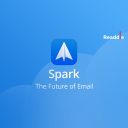How I Built A $24K/Month Mentorship Marketplace
Hello! Who are you and what business did you start?
Hey! My name is Dominic Monn, I am the founder and CEO of MentorCruise, the go-to place if you are looking for career coaching.
Our primary product is a coaching marketplace, where we are both helping career professionals turn their knowledge into a marketable coaching business, and also make it possible for mentees to find a perfect mentor with just a few clicks.
Currently, we’re making around $24,000 per month in commissions and we’re processing north of $120,000 every month for our mentors.

What's your backstory and how did you come up with the idea?
I come from a non-traditional background in tech. At 15 years old, I picked up an apprenticeship to study software engineering. At 19 years old I skilled up in Machine Learning and entered big tech, as part of an internship at Nvidia....




















